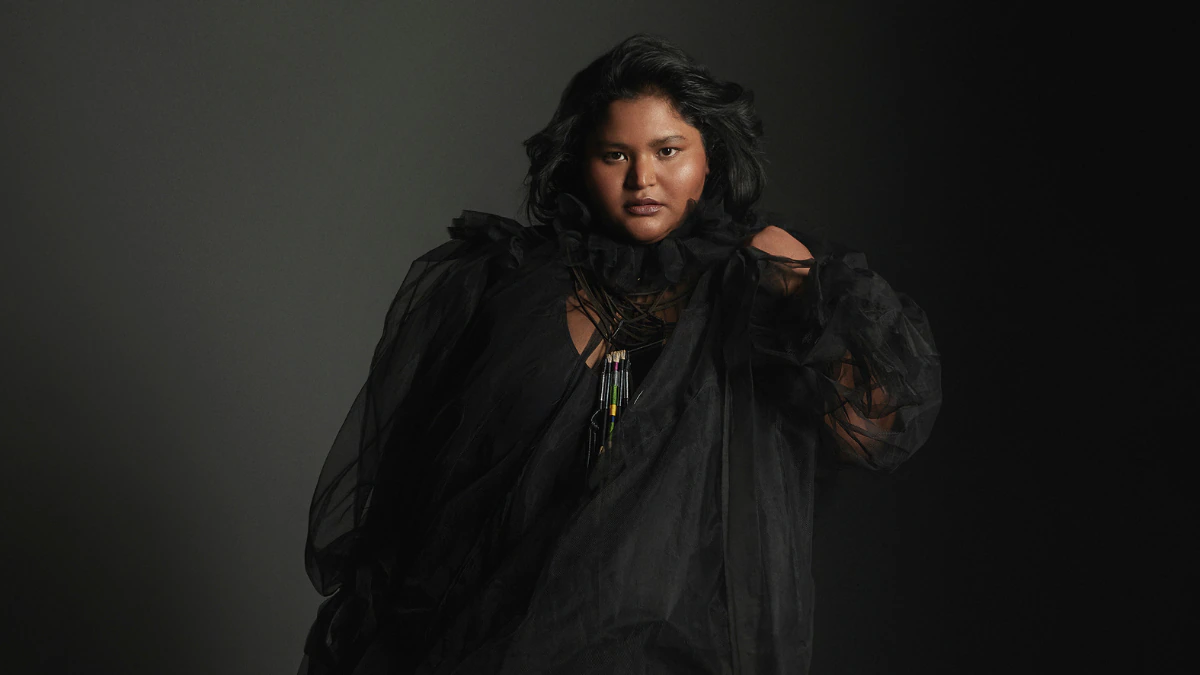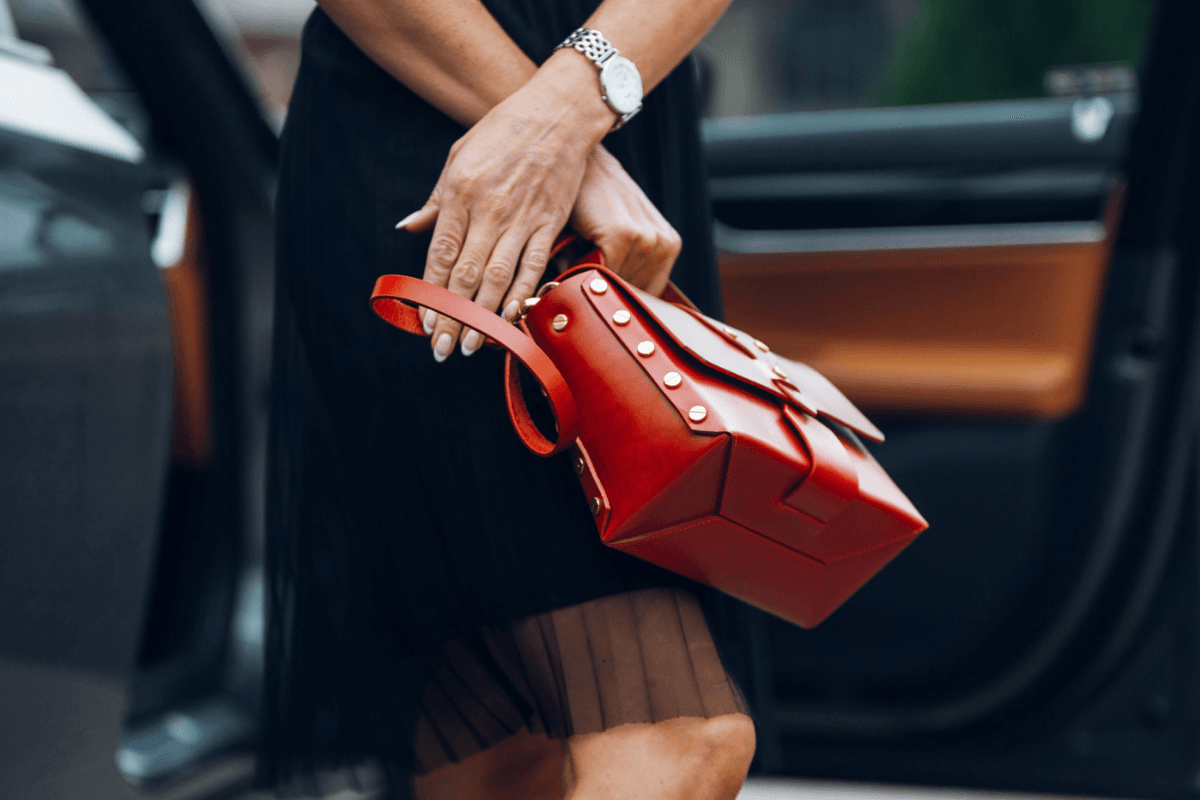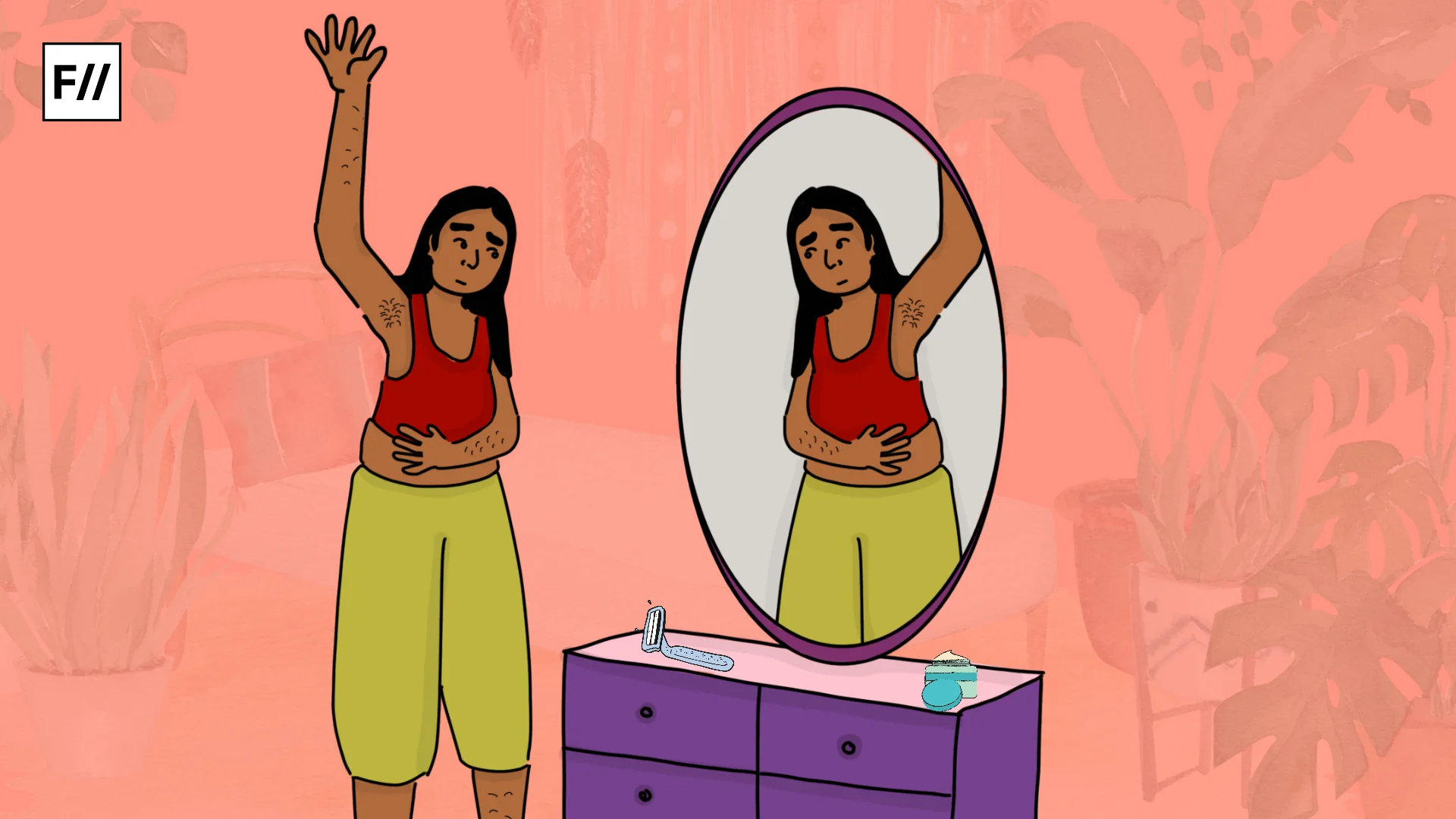It is written in ancient scriptures that every time you wear makeup and feel confident, you will receive at least one unsolicited comment like “but why do girls have to wear makeup?”
I’m sure we have all come across an entitled man who is all about “natural beauty”, and doesn’t shy away from announcing this opinion, expecting a reward for his simplicity. However, it is also said that if you enjoy dressing down, and like that no makeup, sweatpants and messy bun look, everyone you know will comment about your dark circles, unshaped eyebrows, breakouts, and basically every minute blemish.
This nexus of societal expectations is called “makeup jo na lage made up” (makeup that doesn’t look like makeup). Here women are met at a strange crossroad of beauty standards and morality, one overlapping the other. This results in expecting women to wear only enough makeup that coverup all unconventional features, but not enough to appear that she has put on makeup. This is because makeup is seen as something that is shallow and morally looked down upon in families and society.
The “good” women are pious and natural; they are effortlessly beautiful, they don’t spend their husbands’ hard-earned money over lipsticks, highlighters, contours. They are authentic with no basic demands (or rights).
Unsaid Rules of Makeup
Women are often subjected to shaming irrespective of their any decision—whether they are skinny, fat, tall, short, educated, uneducated. This scenario is also the same, where women are burdened with the societal expectation of beauty, and it is masked with a demand of inherent perfection. It needs to be balanced—a little more and it may make you a ‘bold bitch’; a little less and your ‘flaws’ start showing.
The expectation of subtle is like an open secret—it’s one of those unsaid rules. Whenever people say “no makeup” they only mean makeup that is nude. So what does that include? Concealer, foundation, contour, slight highlighter, tint and light pink lipstick.
Good vs Vamp Narrative
There runs a very redundant narrative in the media about the “good” and “bad” women for all of us who have grown up watching Komolika know better, than to lad our faces with heavy makeup. The “good” women are pious and natural; they are effortlessly beautiful, they don’t spend their husbands’ hard-earned money over lipsticks, highlighters, contours. They are authentic with no basic demands (or rights!). All they do is serve their patriarchal overlord with their simplicity.
On the other hand, the bitchy character and vamp are painted layers of lipstick. In fact, anyone who doesn’t watch this cringefest of shows, can still makeout who the vamp is, just by her looks. She is portrayed as a superficial character, who is often vain. Her vanity is proportional to the shade of her lipstick and eyeshadow. The whole point of her existence is to lure in the protagonist (obviously a man) and break apart the happy couple.
This patriarchal conditioning leads us to think of makeup as morally bad—applying makeup makes you materialistic, superficial and a few years down the line your only goal will break a marriage apart.
If the narrative only led us to believe makeup is bad, and we should call out capitalism of cashing on our insecurities, I would be all for it. If this conditioned women to believe that inner beauty is all that matters, we would all appreciate it. But it does not, because the protagonist obviously does wear loads of makeup. The protagonist who is already fitting in all the boxes of conventional beauty standards is future bathed in powder to make her look “fair” and blemish-free.
On the other hand, the bitchy character and vamp are painted layers of lipstick. In fact, anyone who doesn’t watch this cringefest of shows, can still makeout who the vamp is, just by her looks. She is portrayed as a superficial character, who is often vain.
This further creates confusion for women, especially teens. They do not relate to the protagonist, because she is too pretty “without makeup”. And applying makeup would mean they are vamp and bad women. This confusion later turns into insecurity.
Also read: Feminism And Make-up: Do They Go Hand-In-Hand?
Morality and Makeup
Makeup has various problems for which it should be looked down upon. The chemicals involved are non-sustainable and often detrimental to the planet. It is expensive and only caters to certain skin tones. It may have chemicals which lead to breakout and premature ageing, and it is an industry that has exploited women and people to profit off of internal insecurity. My basic point is there are several logical reasons to hate on makeup, but morality is not one of them.
Women who apply makeup are believed to be “bimbos” and that their entire life reloves around beauty and vanity, they are also considered stupid just because they enjoy makeup. They are judged to be shallow, materialistic and also bold and inviting towards men. These notions are extremely harmful, especially in a society that internally hates women with no makeup.
“But YOU don’t HAVE TO wear makeup”
Yes, all the women are aware that they don’t have to wear makeup. But saying this does not liberate women from years of conditioned insecurity, nor does it destroy beauty stands. All comments like these do is create a space of entitlement. It often sounds as if women are dressing up for men and they are permitting her to be free from the beauty tax.
This supports the narrative that women invest hours of makeup to impress the male gaze. Which is not true, because beauty is not limited to conventional standards. Makeup is a way to feel confident—it’s a way to explore different parts of yourself, it’s a form of art and self-expression. Therefore, no one should have the right to say whether someone else has to or not wear makeup because it is not their decision to make.
Also read: Makeup Shaming – Why Are We Still Doing It?
Conclusion
The relationship between makeup and gender is dynamic. Over the centuries, it has shifted. It’s seen as a way to confine women to beauty standards, but it’s also seen as a way to liberate oneself. Sometimes, it’s imposed on women, especially in jobs like the air hostess, bartender, receptionist. Often it is fun and a way to express yourself, it is enjoyed by people irrespective of their gender.
Therefore, it’s about time we call out the irony in makeup jo na lage made up and stop shaming women for their choices, and stereotyping them on how they carry themselves. Rather than directing hate towards women, it should be at the culture, expectation, definition of beauty and the male gaze.
About the author(s)
Vasudha Chandwani is a fourth year law student studying at ILS Law College, Pune. She loves reading and enquiring about new things while also finding out ways to keep the struggle against oppression alive. She considers herself an aficionado of tea and loves gardening and binging shows with female protagonists in her free time.




